The Geography Olympiad: Bandung, Indonesia
School student Dion Thompson joined Team UK at this year’s International Geology Olympiad in Indonesia. We hear from Dion’s mentor Anna Hicks, before Dion reports on the Olympiad itself.
22/12/2023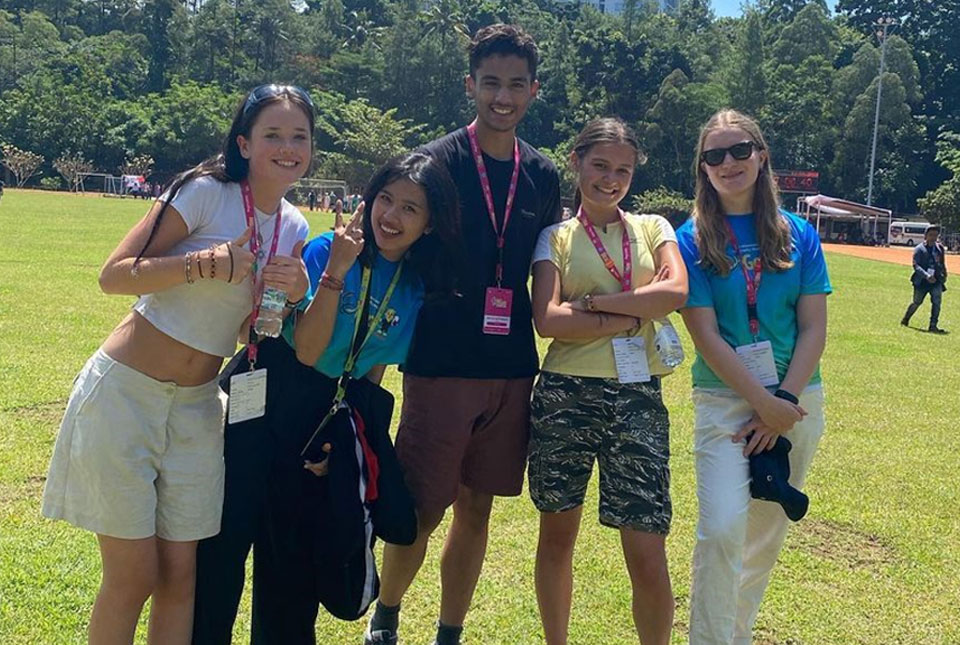
There are a myriad of ways in which we engage with the public at BGS. When we think of public engagement, our minds might conjure up open days, school career talks or community-based meetings. Hopefully, we’ve all had at least one experience where having a meaningful interaction about a topic can produce the ‘feel-good’ emotions that come from being animated or passionate about something. But communicating this feeling can also be mutually enriching and could lead to something new: perhaps research ideas, new ways of thinking and understanding — or maybe even a change of career.
When school student Dion Thompson contacted me earlier in the year, he was keen to find out more about Tristan da Cunha, an island context and community with which I’m very familiar. He was undertaking a school research project about the effects of volcanism on socioeconomic activity, particularly the effects on agriculture. He’d certainly done his research and knew how and who to reach out to! He asked me some great questions and gave me things to think about too.
From simply being curious and conscientious, Dion’s 2023 was about to head in a very exciting direction. His essay on Tristan da Cunha won him a place as part of Team UK at the International Geography Olympiad, which this year was held in Bandung, Indonesia. The rest of this blog is his story, reflections and knowledge he gained from his incredible experience.
The Geography Olympiad: Dion’s story
My experience at the International Geography Olympiad, known to many as iGeo, was fascinating to say the least and definitely an event to remember! It took place from 8 to14 August 2023, giving my team and the opportunity to step out of the classroom straight into the heart of Bandung, Indonesia.
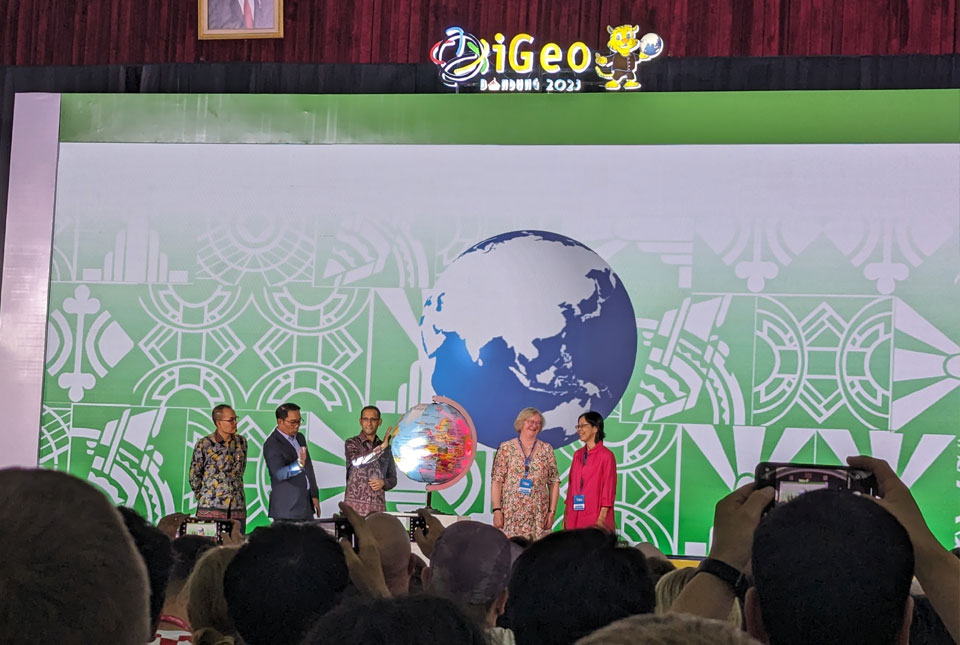
iGeo organisers presenting the opening ceremony. Source: iGeo Indonesia Organising Committee
Parallel to three different exams, which explored a variety of disciplines such as geological drawing, orienteering and quickfire geographical knowledge, I was able to immerse myself into Indonesian culture and the competition I also had the opportunity to interact with people from so many different countries. It was definitely an event to remember and something I would highly recommend to anyone interested in geography!
Upon reaching Bandung, we were introduced to the international cohort of teams that we would be competing against at the Olympiad. From Bulgaria to Japan, Nigeria to Belarus, there were so many countries being represented: fitting for a geography competition! The opening ceremony spectacularly outlined what our time would be like at iGeo, as well as showcasing several performances from Indonesian dancers and musicians. Later that day, we were brought to the governor’s palace in Bandung to have a gala dinner.
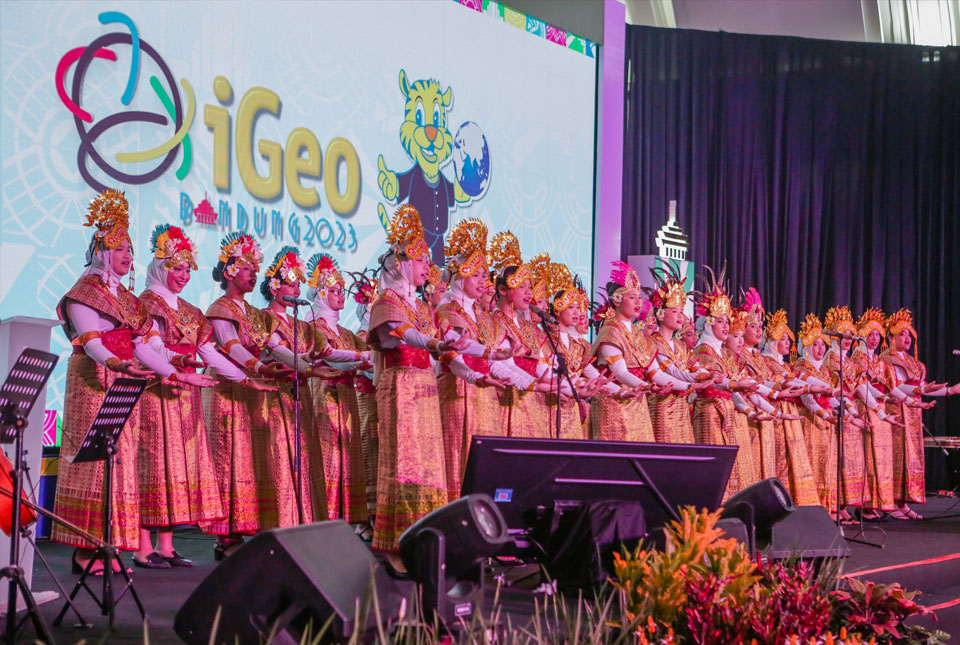
Indonesian dancers at the gala dinner. Source: iGeo Indonesia Organising Committee
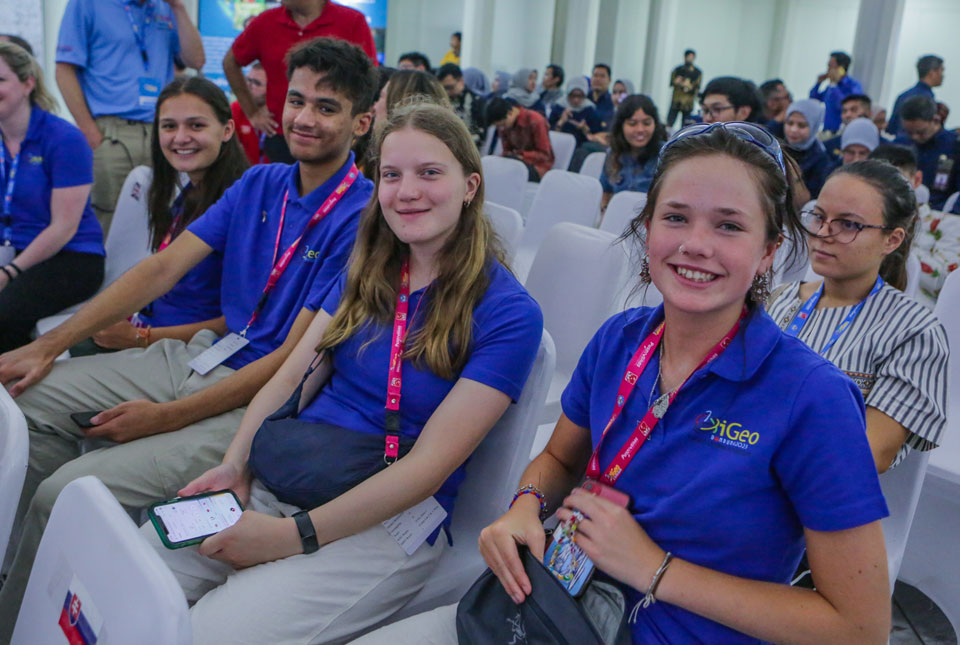
Team UK at the Opening Ceremony. Source: iGeo Indonesia Organising Committee
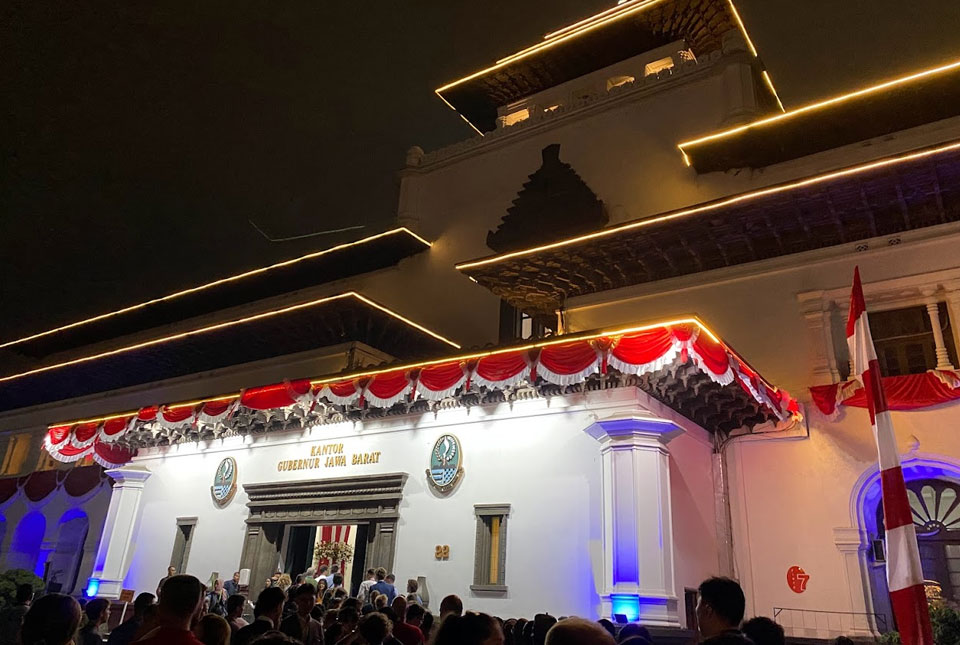
Gedung state building, where the gala dinner took place. Source: Dion Thompson
The next day, the competition started off strong with the written response test, worth around 40 per cent of our score. We were all quite nervous; however, after sitting the exam, my team and I felt confident in our answers (besides a few of the drainage basin questions, which I had yet to learn about in class!) I found the written response test extremely engaging as, rather than having to memorise answers, I was able to utilise the geography knowledge I already had, making it a much more rewarding exam to complete.
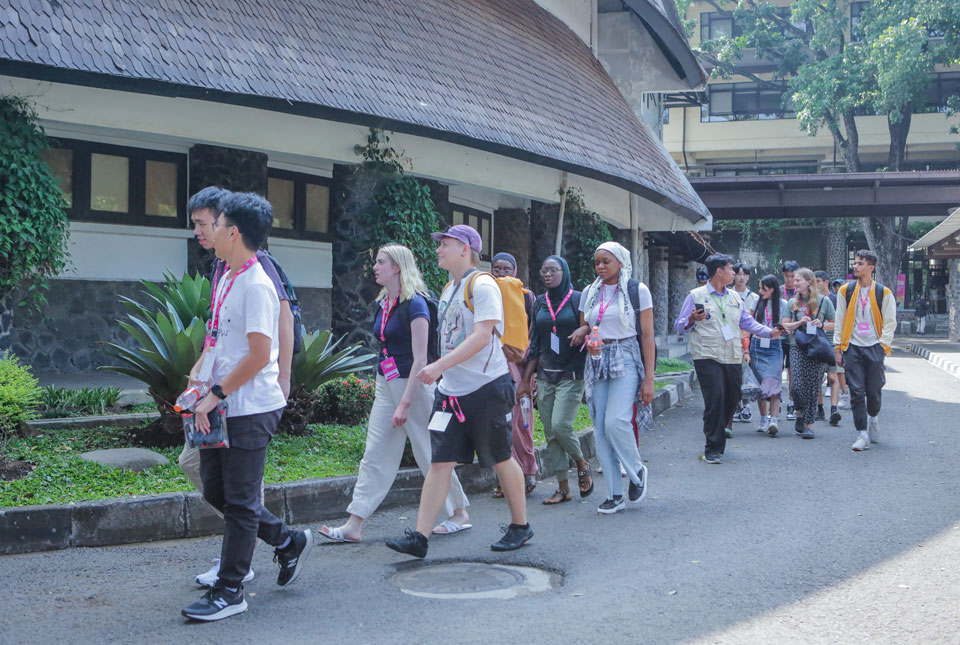
Students walking to the written response test at the Bandung Institute of Technology. Source: iGeo Indonesia Organising Committee
Day three was the fieldwork test, possibly the most strenuous test both mentally and physically. We were driven to the mountainous outskirts of Bandung, where we had to complete multiple fieldwork activities including mapping, data collection, zoning of the local area and drawing geological sketches. It was extremely satisfying to see how the data we collected in the rainforest and nearby town had to be utilised in the fieldwork exam. It was also a great way to see the natural beauty of Indonesia; I had never been in a rainforest before and there were so many different animals roaming around as we conducted our exam. It was a world unlike any that I’d ever experienced.
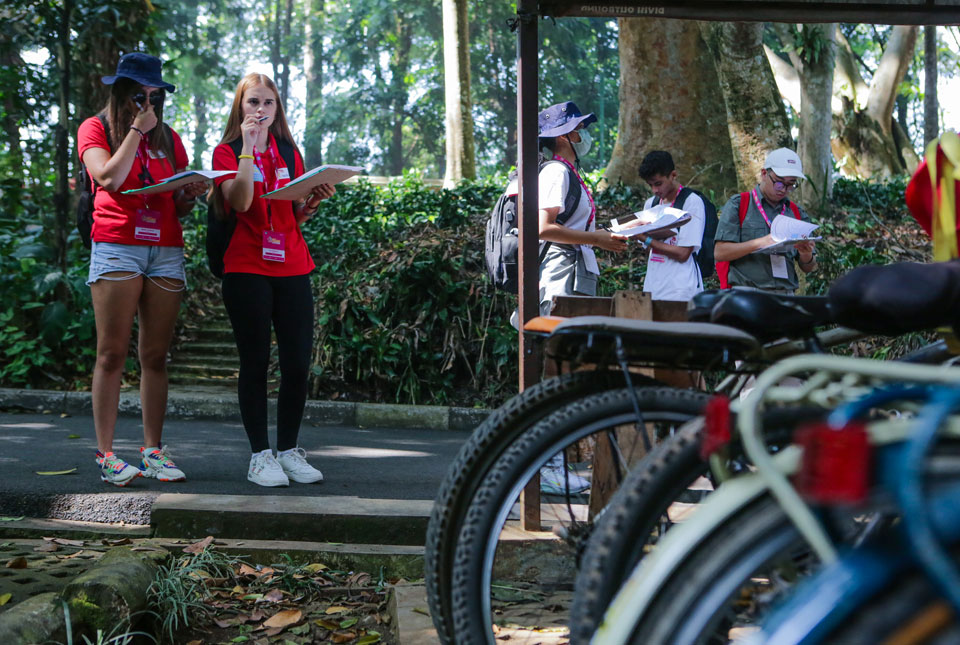
Fieldwork test observation at site one. Source: iGeo Indonesia Organising Committee
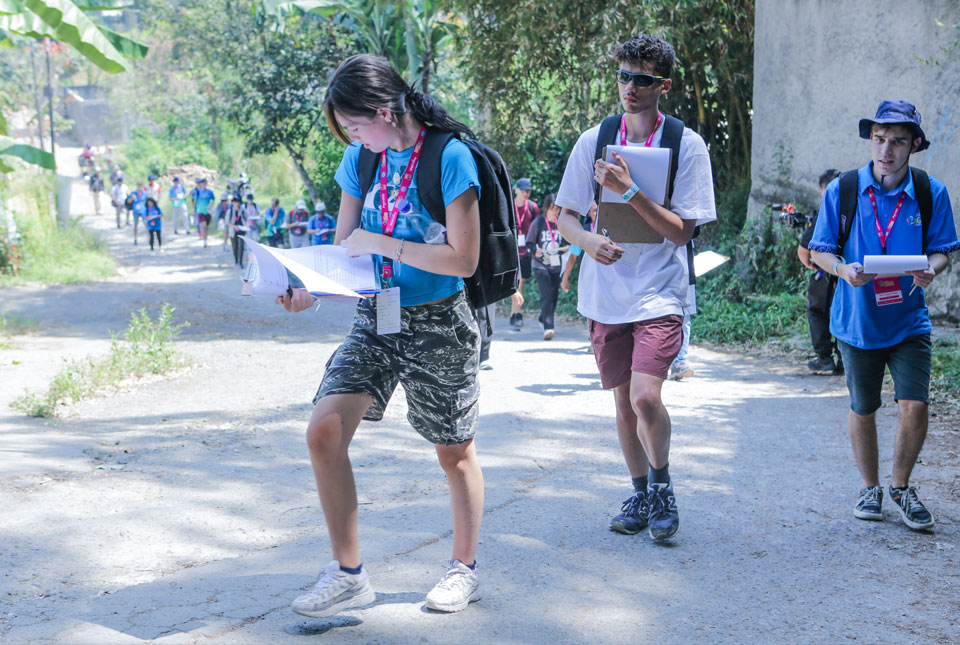
Team UK en route to Site 2 of the fieldwork exam. Source: iGeo Indonesia Organising Committee
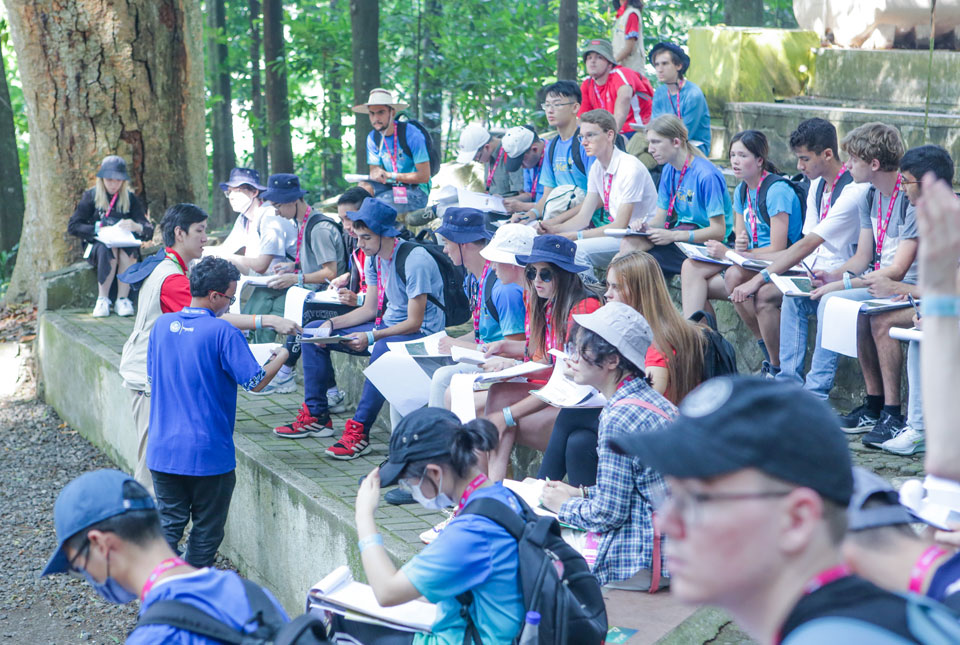
Briefing for the fieldwork test. Source: iGeo Indonesia Organising Committee
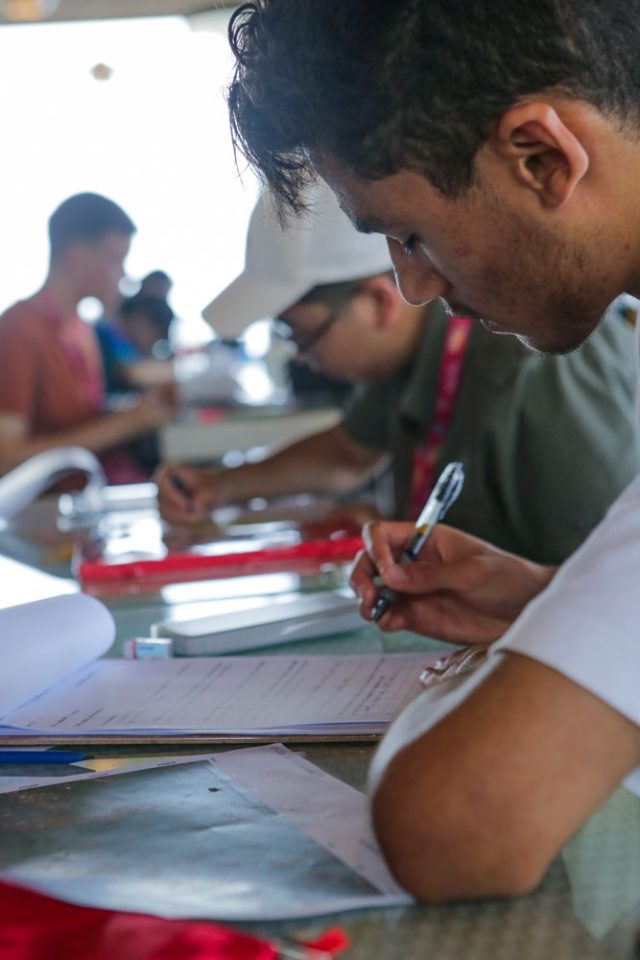
Written exam based on data collected from fieldwork observations. Source: iGeo Indonesia Organising Committee
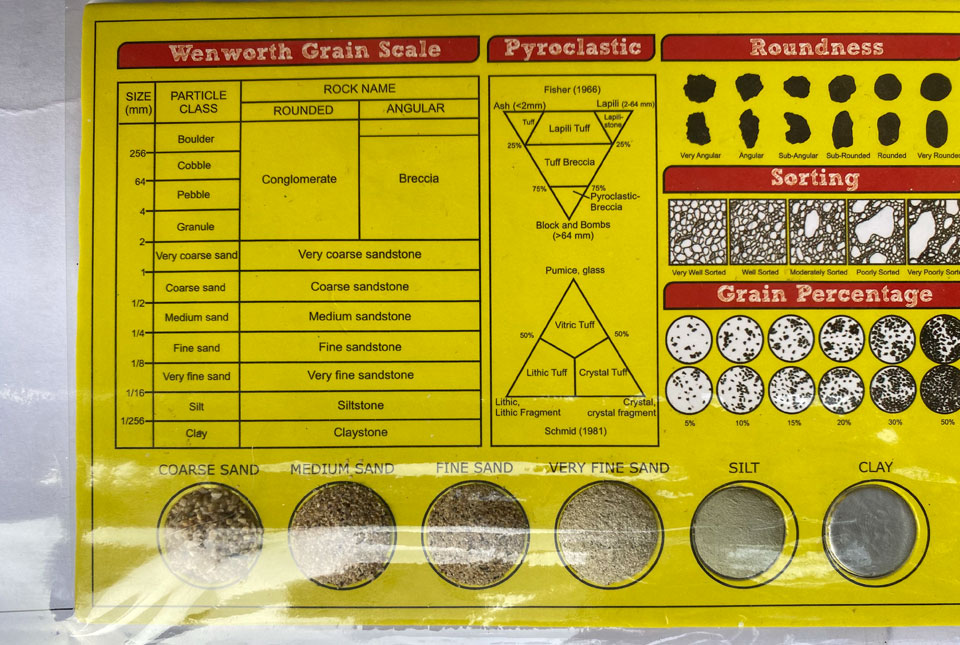
Guide used for geological outcrop drawings. Source: Dion Thompson
Day four was the first day free from exams, allowing us to breathe a little bit in preparation for the multimedia test on the penultimate day. We spent our time taking an excursion to the Tangkuban Perahu volcano with its massive caldera and sulphurous clouds bubbling up to the edge. It was a sublime sight and for, many of us, it was our first time seeing an active volcano.
Our poster presentation took place that evening: in preparation for iGeo, Team UK had worked on a poster focusing on the diversity of Britain. My section focused on the architecture of Croydon, my home town. Presenting in a grand expo hall was nerve-wracking, but we eased into it and got to learn about so many other amazing countries!
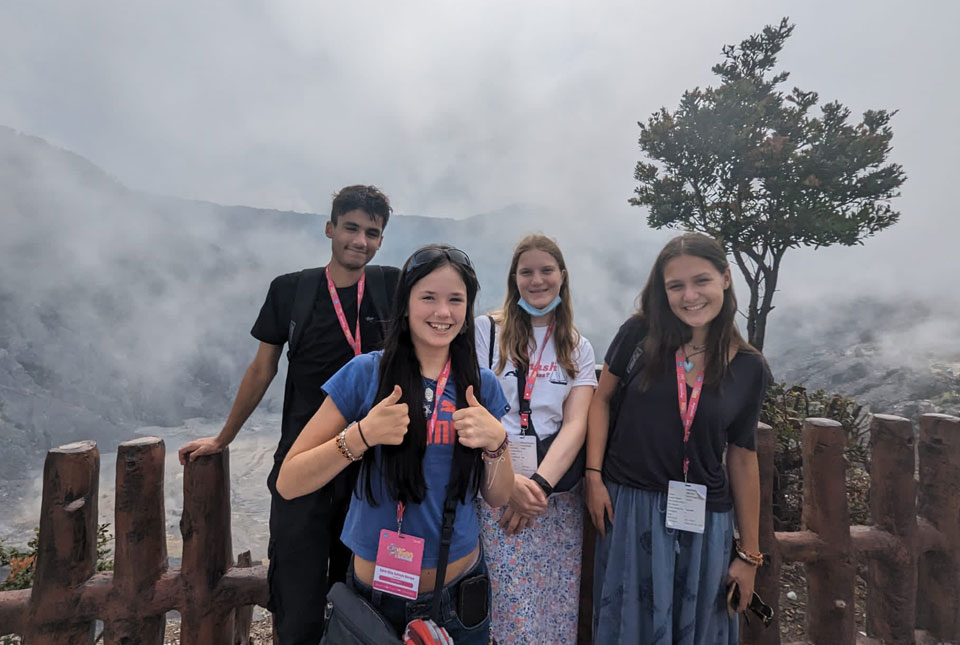
Team UK at Tangkuban Perahu volcano. Source: Jo Bayham & Jen Lomas
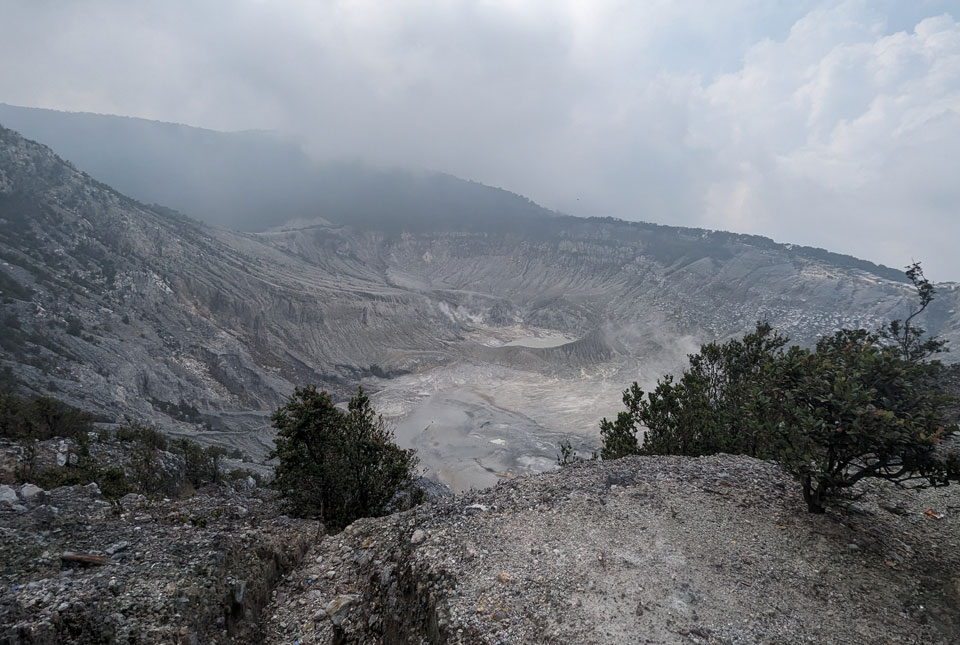
The Tangkuban Perahu caldera. Source: Dion Thompson
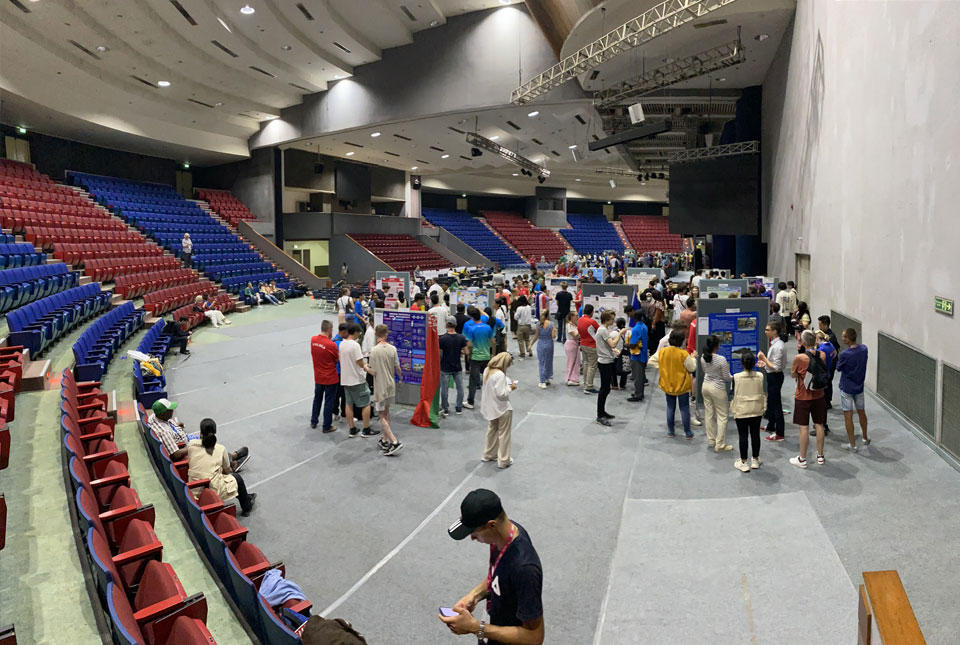
Expo hall for the poster competition. Source: iGeo Indonesia Organising Committee
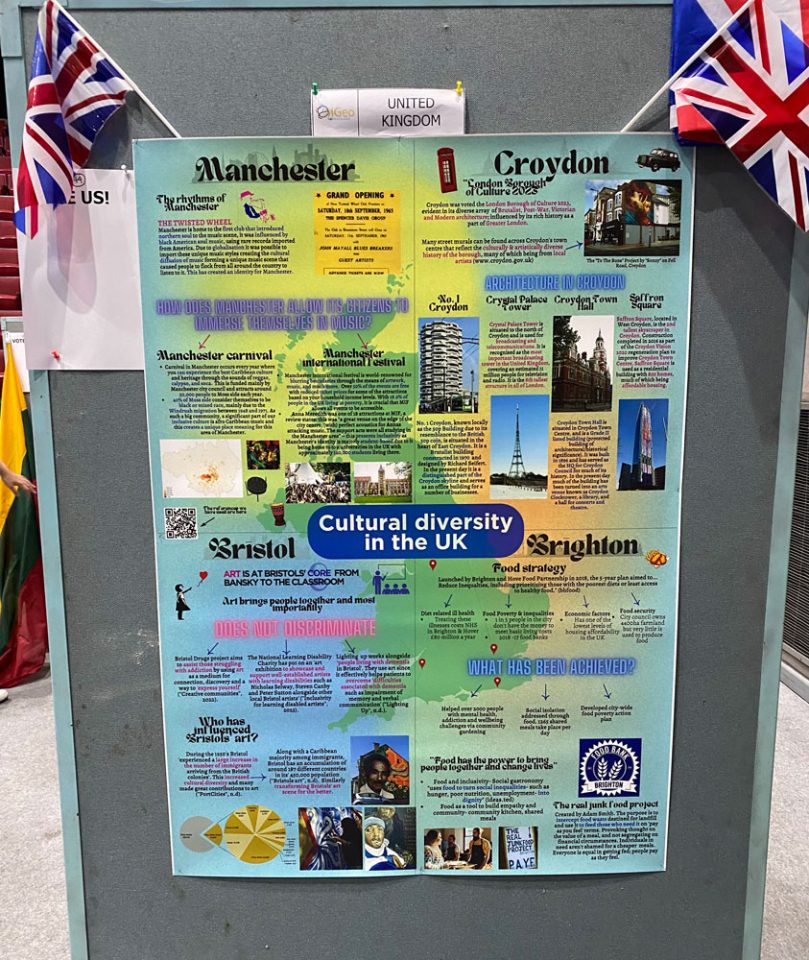
Team UK’s poster on the cultural diversity of Manchester, Croydon, Bristol and Brighton. Source: Dion Thompson
The multimedia test took place on day five, examining us on a wide range of geographical topics. To cool off afterwards we took part in a traditional sports day, where we learned many new activities including walking on stilts, archery using blowguns, a sack race and a six-legged race! We even had a 400 m race between Teams UK and Australia!
The closing ceremony took place on our final day. After an excursion to a mesmerising sculpture park, the medallists of the competition were announced in the evening. Everyone was extremely excited and nervous for the results and, as the bronze medallists were revealed, I was shocked to see my name come up on screen! Surrounded by cheers and somewhat bewildered, I walked up to the stage where I received my medal and held the Union Jack up alongside the other bronze medallists holding their countries’ flags. It was so surreal to have won a medal for Team UK and it was incredible to celebrate with the rest of my team and the friends I had made at iGeo after the ceremony had ended.
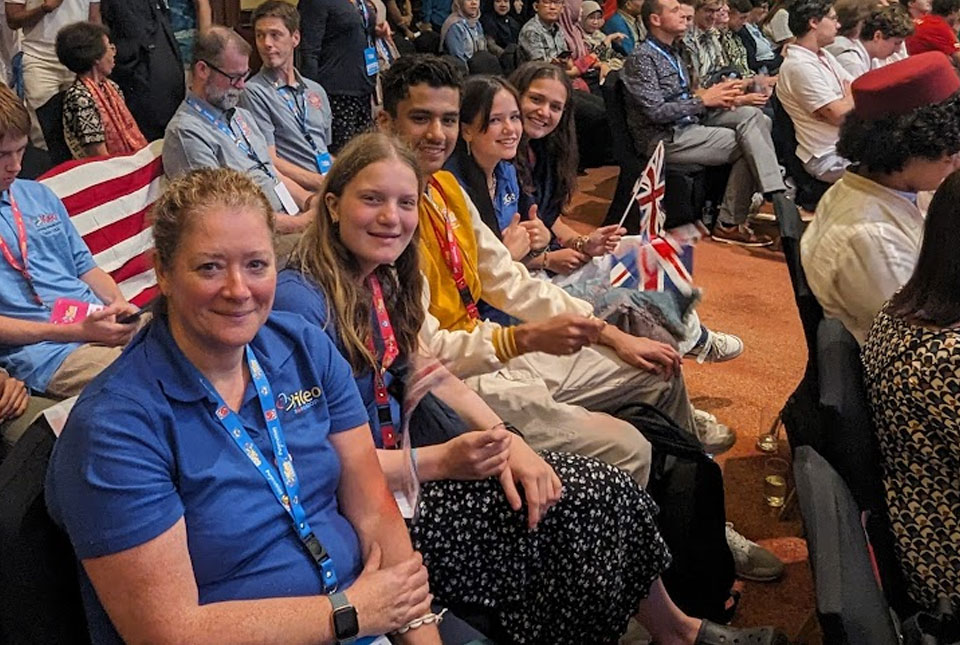
Team UK at the closing ceremony. Source: Jo Bayham & Jen Lomas
All in all, the International Geography Olympiad was an incredible and invaluable experience for me and everyone else who attended. As a geography student, seeing my subject in this kind of grandeur was truly unforgettable. Special thanks to Anna, Sylvie and Charlotte from Team UK; Adit, Jasmine, Tom and Marcus from Team Australia; Gold from Team Nigeria; Douglas from Team Taiwan; Brayden and Xavier from Team Canada, and Jonas and Rune from Team Belgium, amongst others, for contributing to all the positive memories I made at iGeo, as well as Jen, Jo and Sue for organising iGeo for Team UK. Thanks also to BGS for helping me on my journey to iGeo.
To those reading this, I hope this has not only persuaded you to learn more about this fantastic event, but also helped you realise that there are so many amazing opportunities out there, All you’ve got to do is take that chance and make it your own.
About the authors
Dion is now applying for earth science-related subjects at university and hopes to visit BGS soon for work experience.
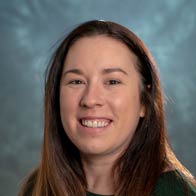
Dr Anna Hicks
Volcanologist, interdisciplinary scientist and science communicator and NERC Knowledge Exchange Fellow
Latest news
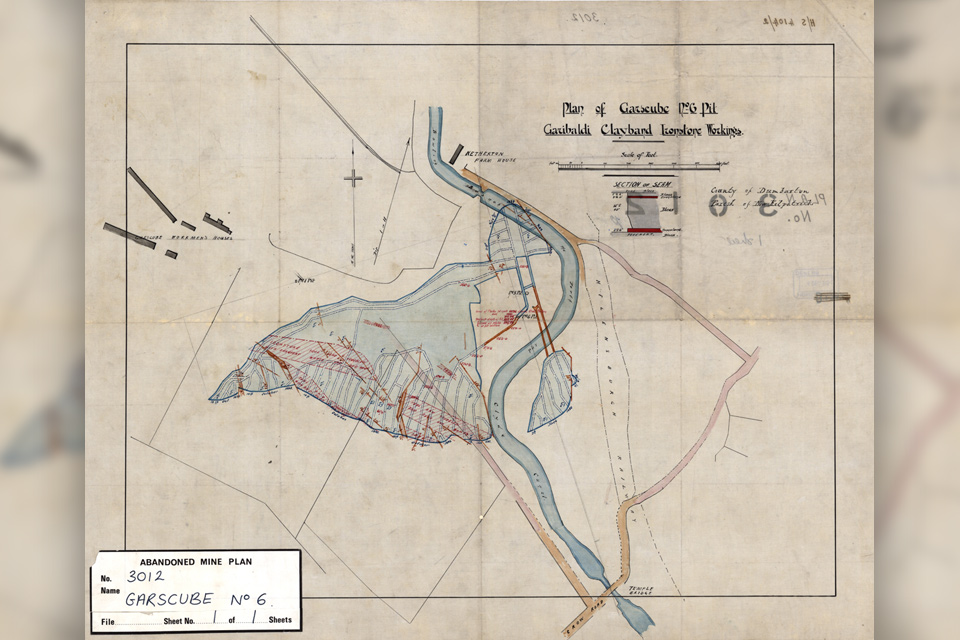
Release of over 500 Scottish abandoned-mine plans
24/06/2025
The historical plans cover non-coal mines that were abandoned pre-1980 and are available through BGS’s plans viewer.
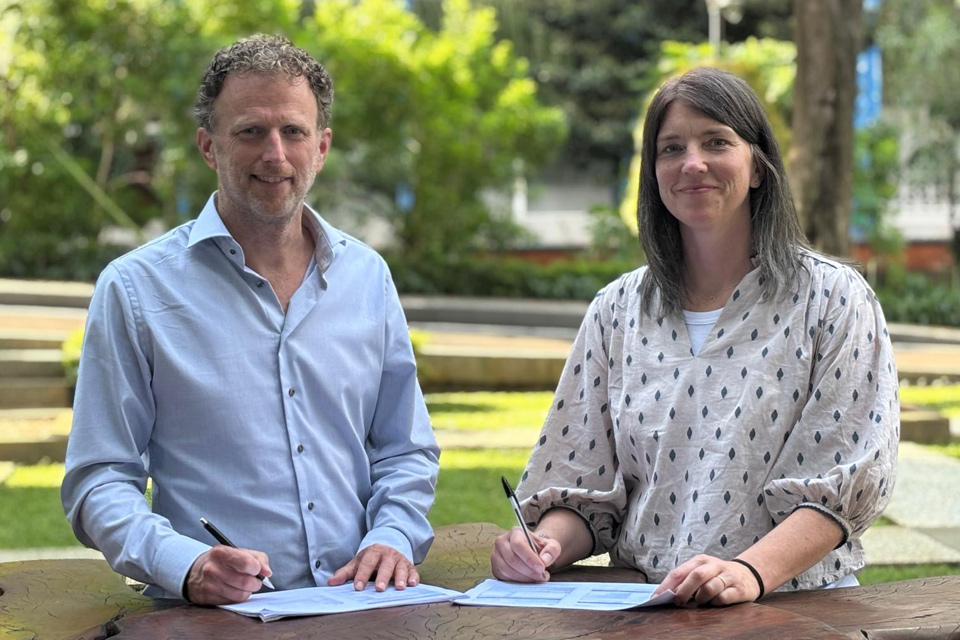
New collaboration aims to improve availability of real-time hazard impact data
19/06/2025
BGS has signed a memorandum of understanding with FloodTags to collaborate on the use of large language models to improve real-time monitoring of geological hazards and their impacts.
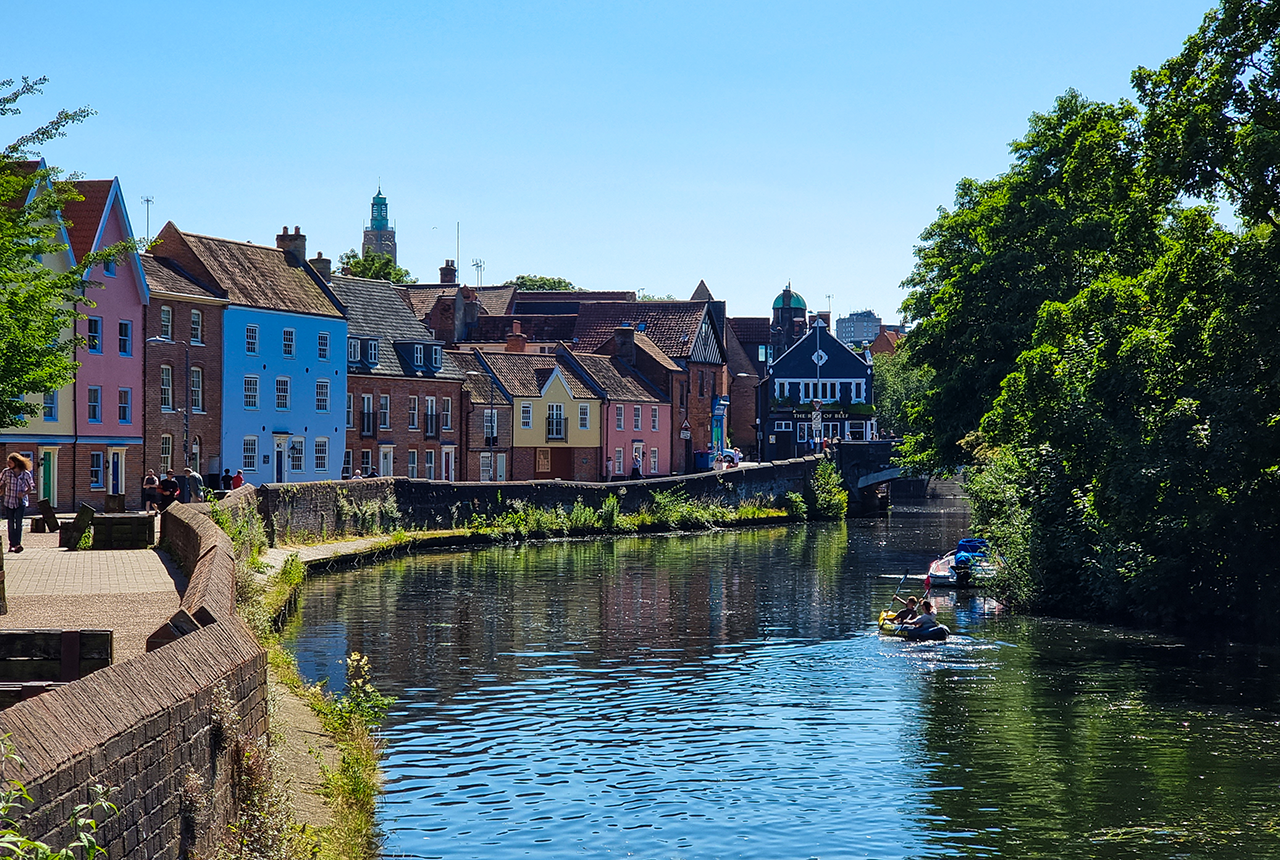
Modern pesticides found in UK rivers could pose risk to aquatic life
17/06/2025
New research shows that modern pesticides used in agriculture and veterinary medicines have been found for the first time in English rivers.

Goldilocks zones: ‘geological super regions’ set to drive annual £40 billion investment in jobs and economic growth
10/06/2025
Eight UK regions identified as ‘just right’ in terms of geological conditions to drive the country’s net zero energy ambitions.
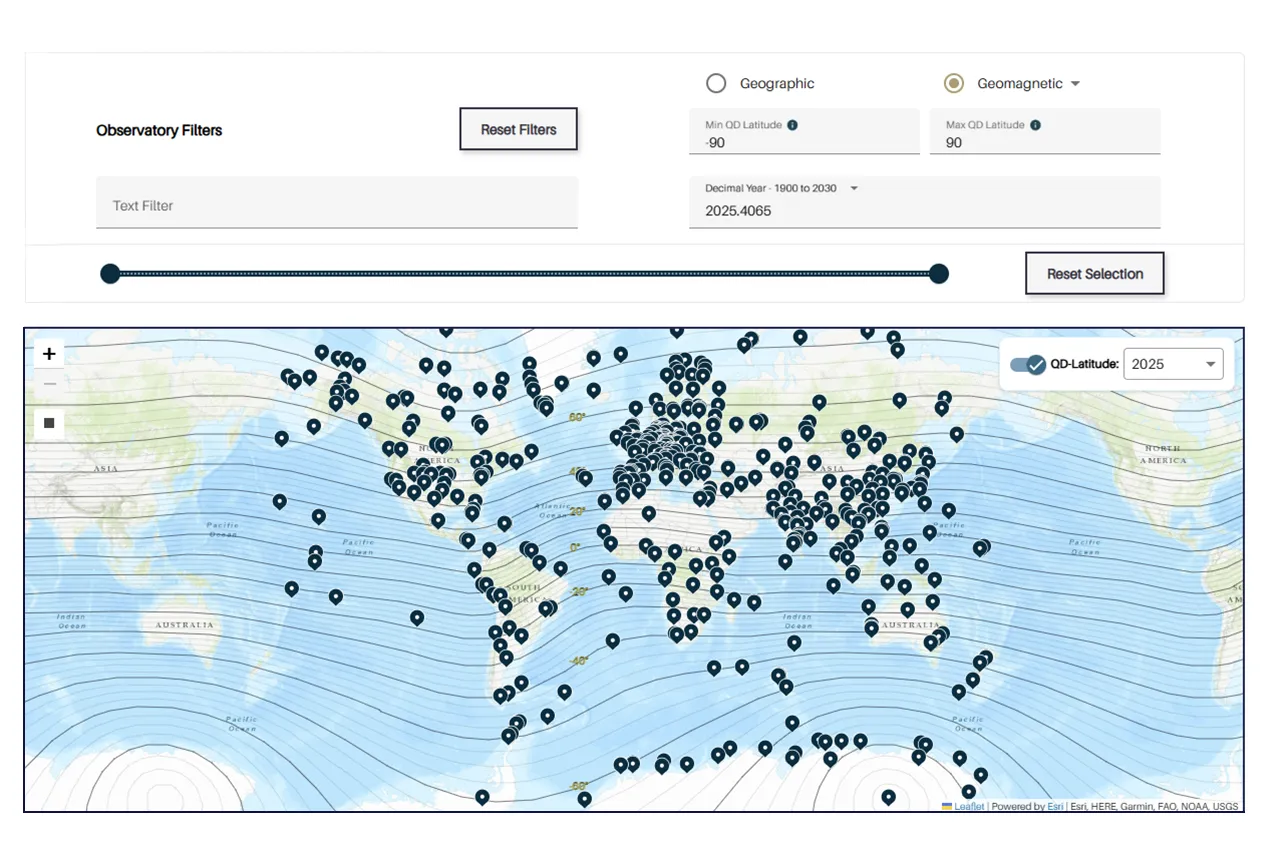
Upgraded web portal improves access to geomagnetism data
02/06/2025
BGS’s geomagnetism portal, which holds data for over 570 observatories across the world, has received a significant update.

BGS digital geology maps: we want your feedback
29/05/2025
BGS is asking for user feedback on its digital geological map datasets to improve data content and delivery.

What is the impact of drought on temperate soils?
22/05/2025
A new BGS review pulls together key information on the impact of drought on temperate soils and the further research needed to fully understand it.
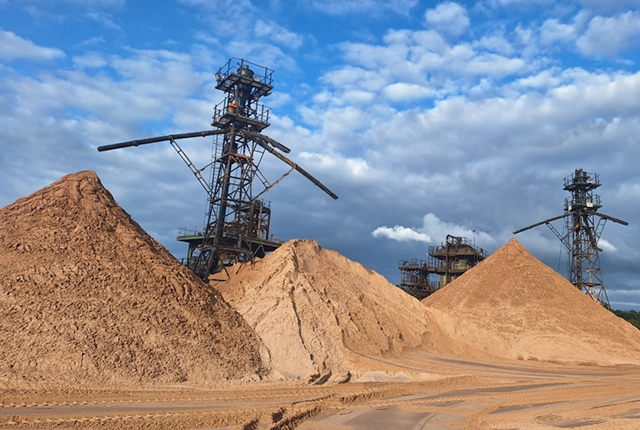
UK Minerals Yearbook 2024 released
21/05/2025
The annual publication provides essential information about the production, consumption and trade of UK minerals up to 2024.

BGS scientists join international expedition off the coast of New England
20/05/2025
Latest IODP research project investigates freshened water under the ocean floor.

New interactive map viewer reveals growing capacity and rare earth element content of UK wind farms
16/05/2025
BGS’s new tool highlights the development of wind energy installations over time, along with their magnet and rare earth content.
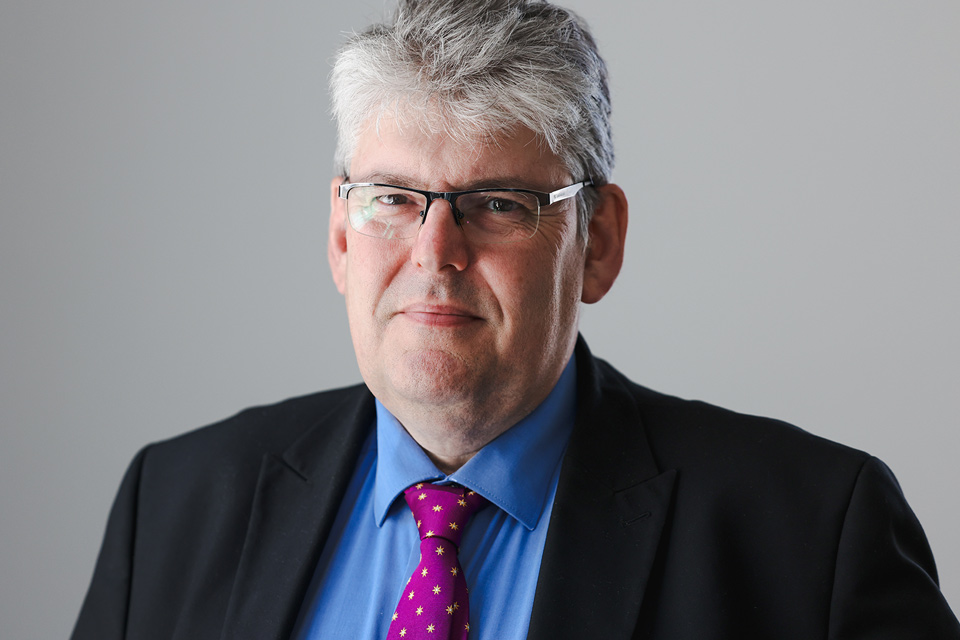
UKRI announce new Chair of the BGS Board
01/05/2025
Prof Paul Monks CB will step into the role later this year.
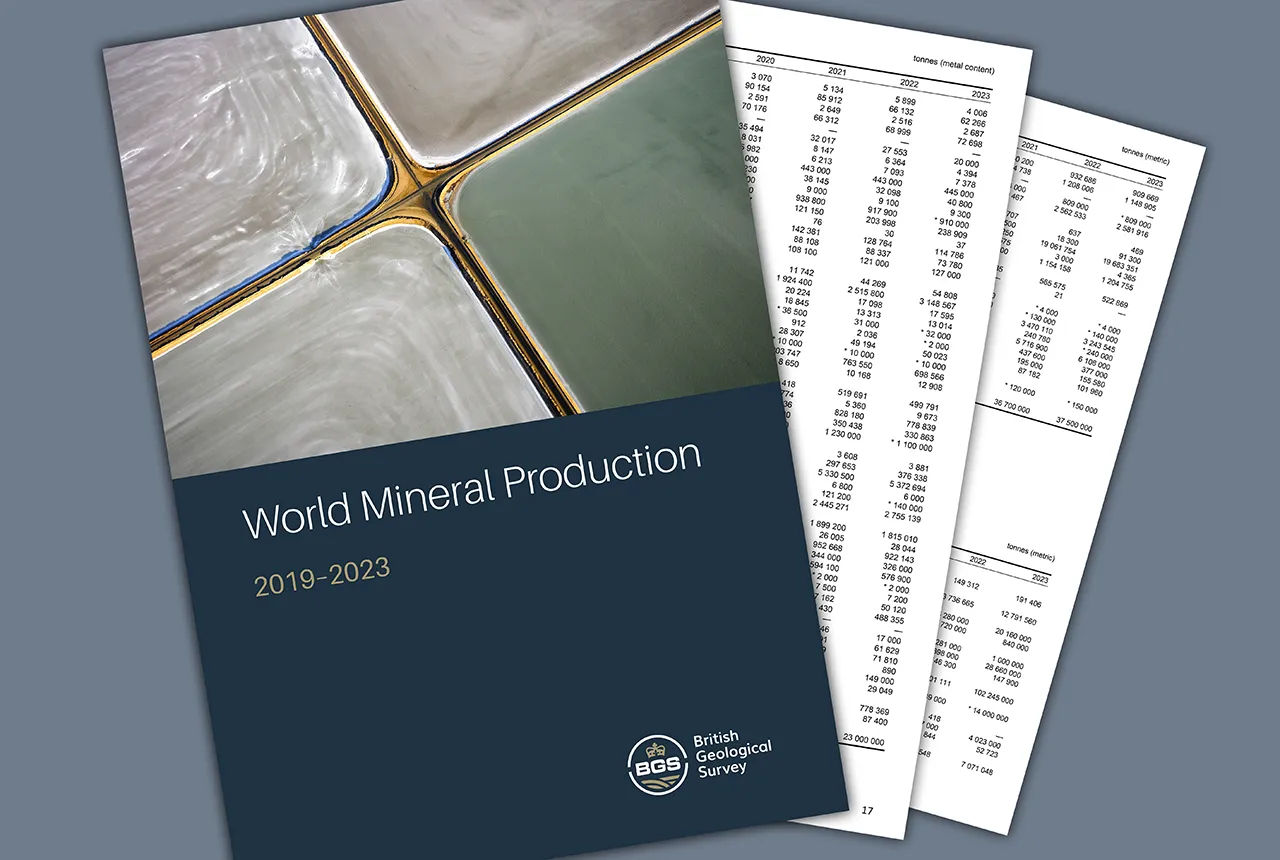
Latest mineral production statistics for 2019 to 2023 released
28/04/2025
More than 70 mineral commodities have been captured in the newly published volume of World Mineral Production.


